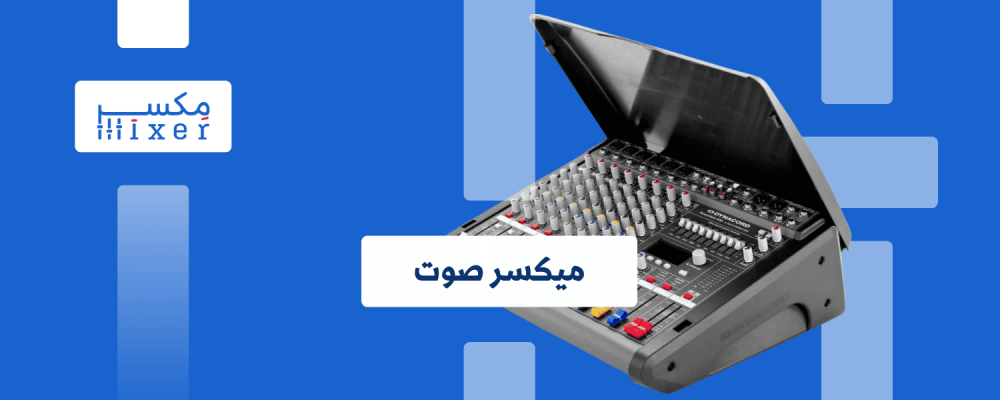introduction :
A mixer is an essential electronic device in the world of audio, whether in music studios or at live events such as concerts and conferences. A mixer allows audio engineers to combine many different sound sources, such as microphones and recorded musical instruments, and adjust the level of each source individually, resulting in a balanced and enjoyable sound.
What is a sound mixer ?
Simply put, an audio mixer is a central control unit that allows you to collect, modify, and route audio signals. It's like an airplane control panel, with each button and control panel representing a specific function.
Basic components of a sound mixer:
- Input Channels: Each channel represents one input for the audio signal, either from a microphone or another device.
- Control buttons: These buttons allow you to adjust the gain, pan, EQ, and effects for each channel.
- Groups buttons: Allow you to group multiple channels together to apply the same adjustments to them.
- Main Bus: Collects all modulated audio signals and outputs them to an amplifier or recording device.
- Aux Bus: Used to send audio signals to other devices, such as headphones or external audio processing devices.
Types of audio mixers:
- Analog mixers : process audio signals in the form of continuous electrical waves. They are characterized by high sound quality and precision in control.
- Digital mixers : These convert audio signals into digital data, providing additional features such as digital signal processing (DSP) and storage.
Uses of audio mixer:
- Recording: The audio mixer is used to record music, podcasts, and interviews.
- Live streaming: Used for live streaming of live events such as concerts and conferences.
- Film and TV Sound: Used in post-production for film and TV sound.
- Public sound systems: used in restaurants, hotels and shopping malls.
The importance of a sound mixer:
- Sound Control: The sound mixer gives you complete control over the sound, allowing you to produce clear and balanced sound.
- Creativity: The audio mixer offers a wide range of creative tools that you can use to create unique audio effects.
- Professionalism: Using a sound mixer is a sign of professionalism in the field of audio.
Tips for choosing a suitable audio mixer:
- Define your needs: What is the purpose of using the mixer? How many channels do you need?
- Budget: Set your budget before you start searching.
- Features: Find the features you need, such as digital signal processing and various connections.
- Sound Quality: Test the sound quality of the mixer before purchasing it.
Conclusion:
A mixer is an essential tool for anyone working in audio. Whether you're a musician, producer, or audio engineer, understanding how a mixer works and using it effectively will help you achieve the best results.
Read more:




